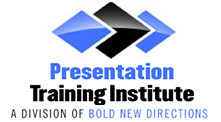The ability to give a successful presentation can be an essential skill in any professional setting. This typically involves plenty of practice and preparation, including a well-crafted script. While a script can definitely provide structure and help ensure that key points are covered, there are times when going off script can be a powerful tool, enhancing the overall experience. Knowing when and how to go off script is crucial for engaging the audience and not losing their interest.
When to Go Off Script
One of the main reasons people often go off script is because they are reacting to the needs of their specific audience. If you notice that your audience is disengaged or confused, it may be necessary to deviate from the script in order to provide relevant background information. Once you have brought them up to speed, you can get back on track. By being flexible and adaptive, you can meet the audience where they are and provide them with information that captures their interest and keeps them engaged.
Another common reason to go off script is to add a personal touch to your presentation. While a script can be an excellent guide for staying on track, it can also feel rehearsed and robotic. When presenters go off script and speak from the heart, they connect with the audience on a more personal level and demonstrate authenticity. This can help build trust and credibility with the audience, making the presentation more memorable.
How to Effectively Go Off Script
1. Be Prepared
While the point is to speak authentically from the heart, you also need to be prepared for what stories or examples you might incorporate into the presentation. Prior to the presentation, try to anticipate the audience’s reaction or any potential questions and have some key points and examples ready to share.
2. Stay Focused
When going off script, it’s easy to start rambling. Make sure to stay on topic and keep your main message in mind. Use relevant examples and stories to illustrate these key points and then come back to your main message.
3. Be Confident
Going off script can be daunting, which is why so many speakers rely on a script. However, when done with confidence, it can truly make for a compelling presentation. It is important to be knowledgeable and prepared about your topic, and this will translate to greater confidence and a greater impact.
4. Practice
Just like with a scripted presentation, practice is important when you are going off script. Rehearse your key points and examples so that you are comfortable speaking about them off the cuff.
Knowing when and how to go off script during a presentation is an important component of delivering a successful presentation. By being responsive to your audience, adding a personal touch, remaining focused, and speaking with confidence, you can create a dynamic and engaging presentation that the audience will remember. For more tips on presenting like a pro, consider enrolling in one of our Presentation Training workshops. Let us help you gain the skills and confidence you need to leave a lasting impression. Call today to sign up!
